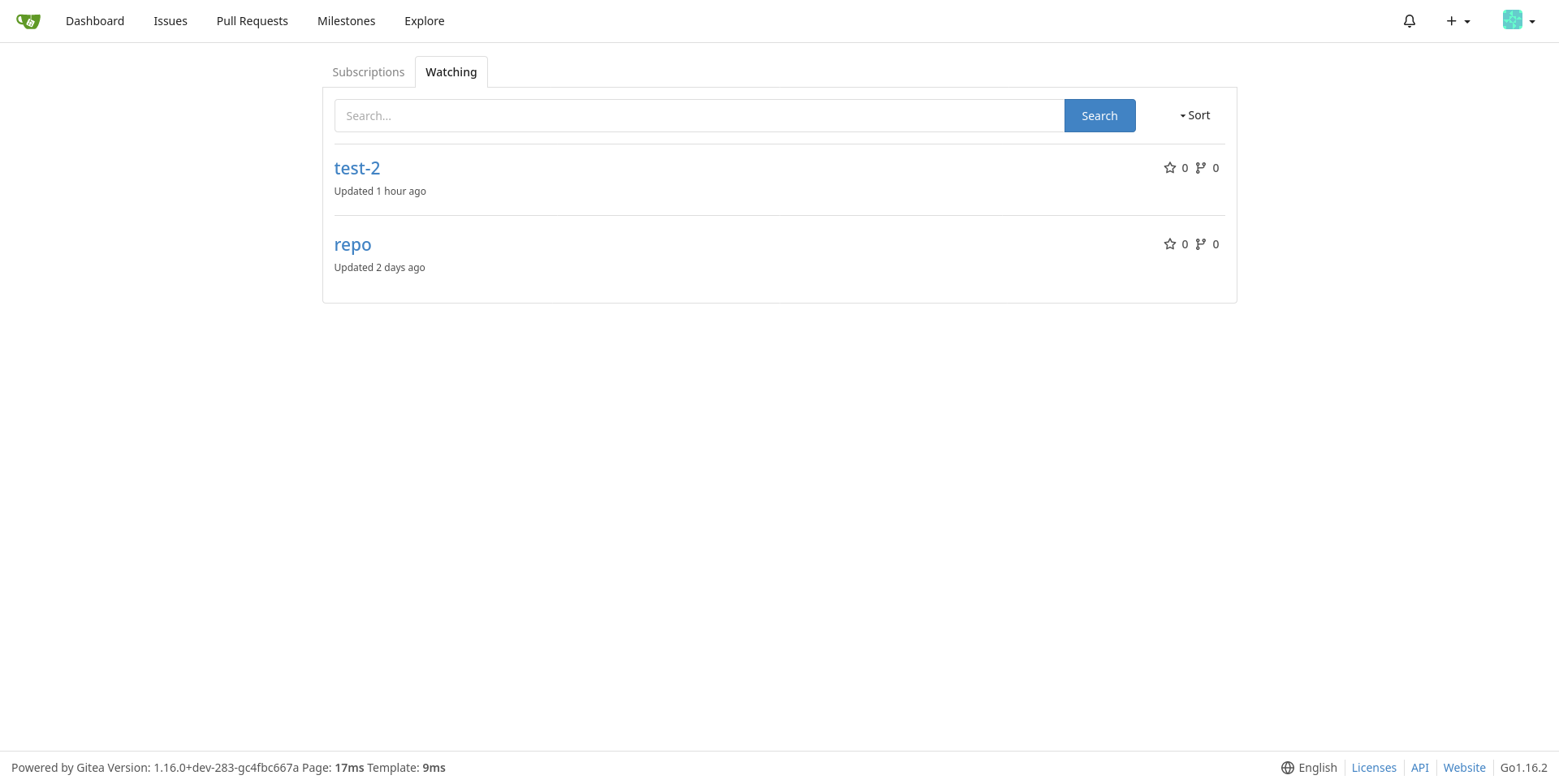IF YOU WOULD LIKE TO GET AN ACCOUNT, please write an
email to Administrator. User accounts are meant only to access repo
and report issues and/or generate pull requests.
This is a purpose-specific Git hosting for
BaseALT
projects. Thank you for your understanding!
Только зарегистрированные пользователи имеют доступ к сервису!
Для получения аккаунта, обратитесь к администратору.
Close https://github.com/go-gitea/gitea/issues/21640
Before: Gitea can create users like ".xxx" or "x..y", which is not
ideal, it's already a consensus that dot filenames have special
meanings, and `a..b` is a confusing name when doing cross repo compare.
After: stricter
Co-authored-by: Jason Song <i@wolfogre.com>
Co-authored-by: Lunny Xiao <xiaolunwen@gmail.com>
Co-authored-by: delvh <dev.lh@web.de>
_This is a different approach to #20267, I took the liberty of adapting
some parts, see below_
## Context
In some cases, a weebhook endpoint requires some kind of authentication.
The usual way is by sending a static `Authorization` header, with a
given token. For instance:
- Matrix expects a `Bearer <token>` (already implemented, by storing the
header cleartext in the metadata - which is buggy on retry #19872)
- TeamCity #18667
- Gitea instances #20267
- SourceHut https://man.sr.ht/graphql.md#authentication-strategies (this
is my actual personal need :)
## Proposed solution
Add a dedicated encrypt column to the webhook table (instead of storing
it as meta as proposed in #20267), so that it gets available for all
present and future hook types (especially the custom ones #19307).
This would also solve the buggy matrix retry #19872.
As a first step, I would recommend focusing on the backend logic and
improve the frontend at a later stage. For now the UI is a simple
`Authorization` field (which could be later customized with `Bearer` and
`Basic` switches):

The header name is hard-coded, since I couldn't fine any usecase
justifying otherwise.
## Questions
- What do you think of this approach? @justusbunsi @Gusted @silverwind
- ~~How are the migrations generated? Do I have to manually create a new
file, or is there a command for that?~~
- ~~I started adding it to the API: should I complete it or should I
drop it? (I don't know how much the API is actually used)~~
## Done as well:
- add a migration for the existing matrix webhooks and remove the
`Authorization` logic there
_Closes #19872_
Co-authored-by: Lunny Xiao <xiaolunwen@gmail.com>
Co-authored-by: Gusted <williamzijl7@hotmail.com>
Co-authored-by: delvh <dev.lh@web.de>
I found myself wondering whether a PR I scheduled for automerge was
actually merged. It was, but I didn't receive a mail notification for it
- that makes sense considering I am the doer and usually don't want to
receive such notifications. But ideally I want to receive a notification
when a PR was merged because I scheduled it for automerge.
This PR implements exactly that.
The implementation works, but I wonder if there's a way to avoid passing
the "This PR was automerged" state down so much. I tried solving this
via the database (checking if there's an automerge scheduled for this PR
when sending the notification) but that did not work reliably, probably
because sending the notification happens async and the entry might have
already been deleted. My implementation might be the most
straightforward but maybe not the most elegant.
Signed-off-by: Andrew Thornton <art27@cantab.net>
Co-authored-by: Lauris BH <lauris@nix.lv>
Co-authored-by: Andrew Thornton <art27@cantab.net>
Co-authored-by: Lunny Xiao <xiaolunwen@gmail.com>
The OAuth spec [defines two types of
client](https://datatracker.ietf.org/doc/html/rfc6749#section-2.1),
confidential and public. Previously Gitea assumed all clients to be
confidential.
> OAuth defines two client types, based on their ability to authenticate
securely with the authorization server (i.e., ability to
> maintain the confidentiality of their client credentials):
>
> confidential
> Clients capable of maintaining the confidentiality of their
credentials (e.g., client implemented on a secure server with
> restricted access to the client credentials), or capable of secure
client authentication using other means.
>
> **public
> Clients incapable of maintaining the confidentiality of their
credentials (e.g., clients executing on the device used by the resource
owner, such as an installed native application or a web browser-based
application), and incapable of secure client authentication via any
other means.**
>
> The client type designation is based on the authorization server's
definition of secure authentication and its acceptable exposure levels
of client credentials. The authorization server SHOULD NOT make
assumptions about the client type.
https://datatracker.ietf.org/doc/html/rfc8252#section-8.4
> Authorization servers MUST record the client type in the client
registration details in order to identify and process requests
accordingly.
Require PKCE for public clients:
https://datatracker.ietf.org/doc/html/rfc8252#section-8.1
> Authorization servers SHOULD reject authorization requests from native
apps that don't use PKCE by returning an error message
Fixes#21299
Co-authored-by: wxiaoguang <wxiaoguang@gmail.com>
Co-authored-by: Lunny Xiao <xiaolunwen@gmail.com>
Adds GitHub-like pages to view watched repos and subscribed issues/PRs
This is my second try to fix this, but it is better than the first since
it doesn't uses a filter option which could be slow when accessing
`/issues` or `/pulls` and it shows both pulls and issues (the first try
is #17053).
Closes#16111
Replaces and closes#17053

Co-authored-by: Lauris BH <lauris@nix.lv>
Co-authored-by: 6543 <6543@obermui.de>
Co-authored-by: wxiaoguang <wxiaoguang@gmail.com>